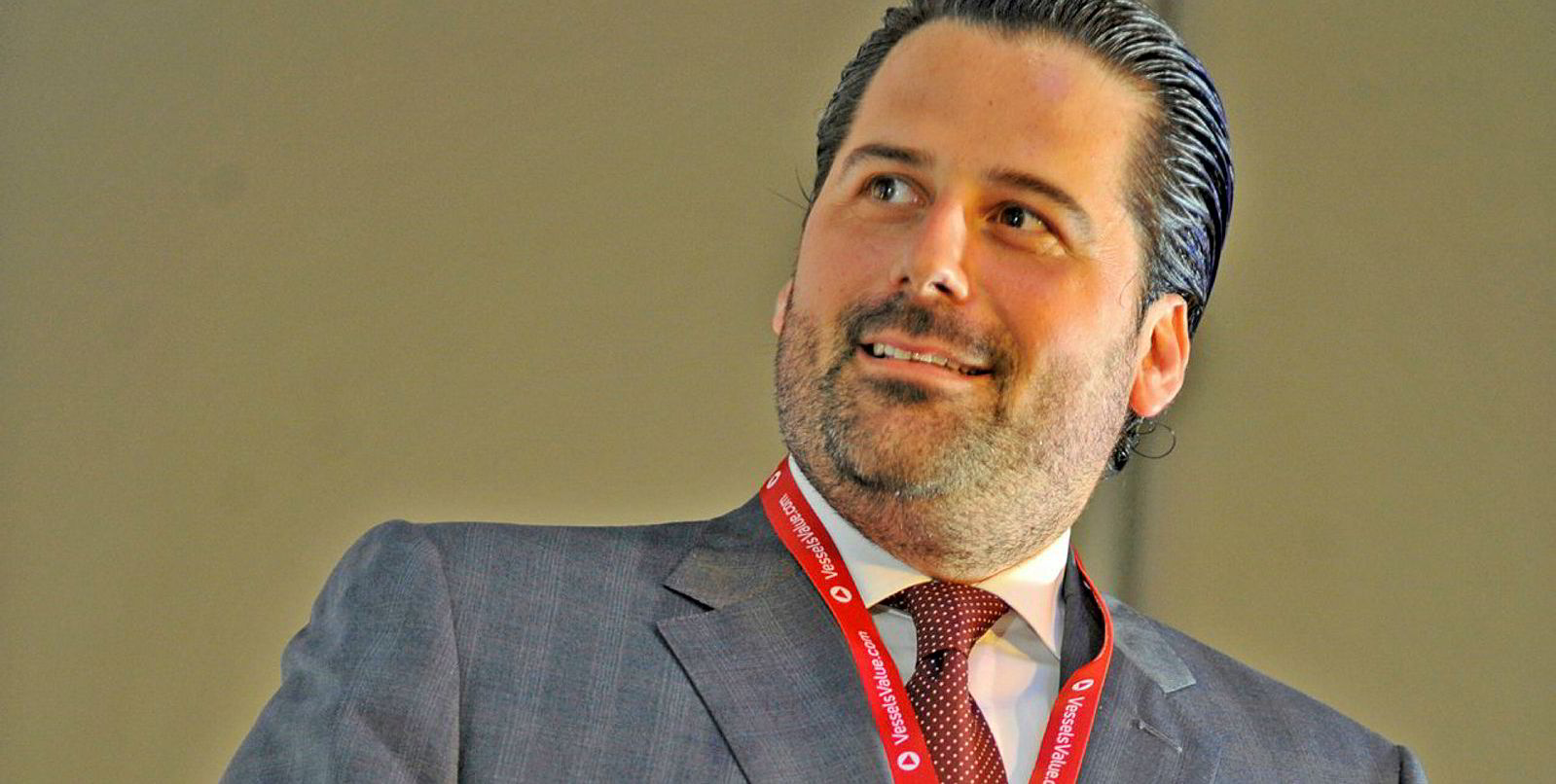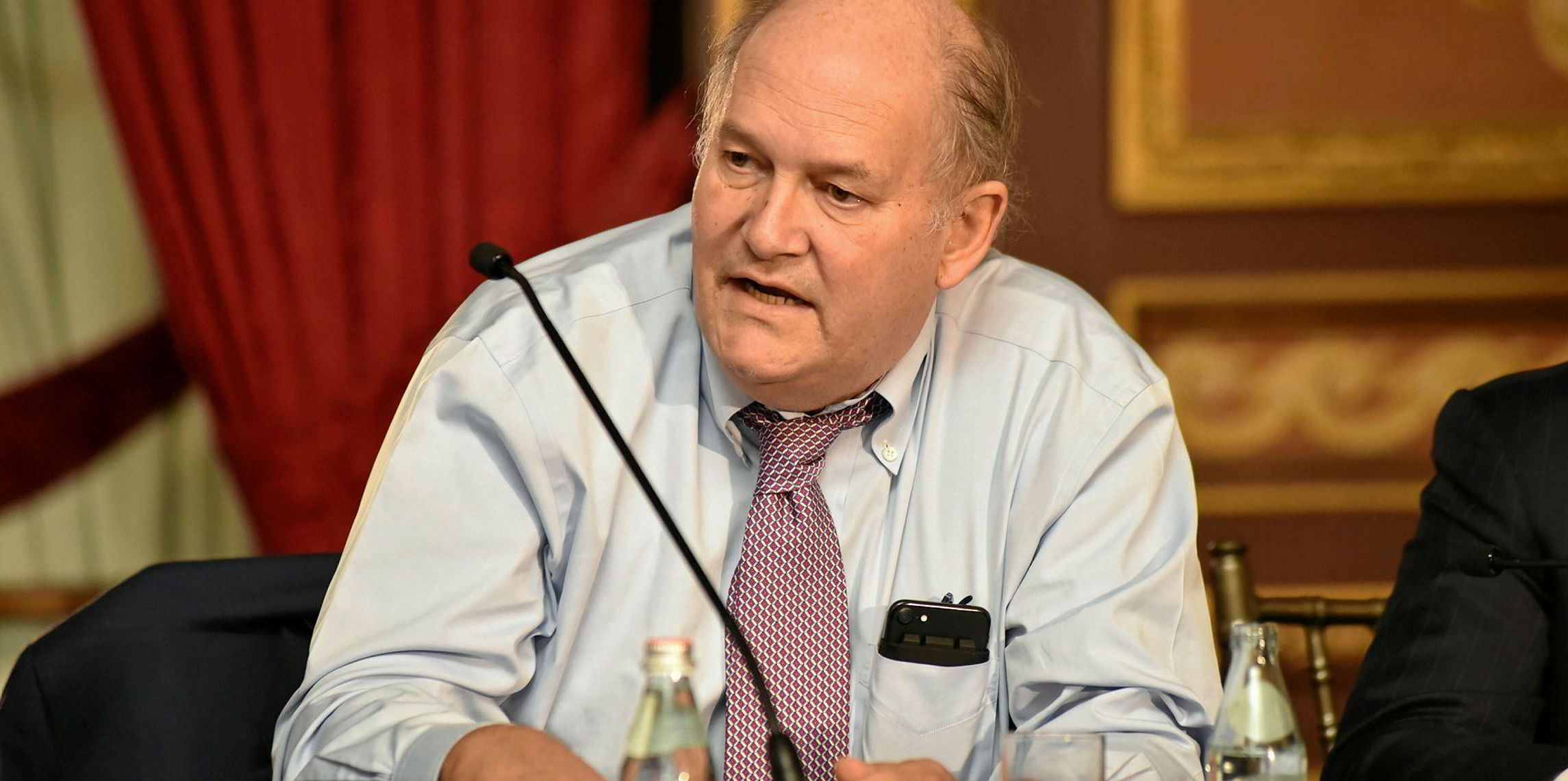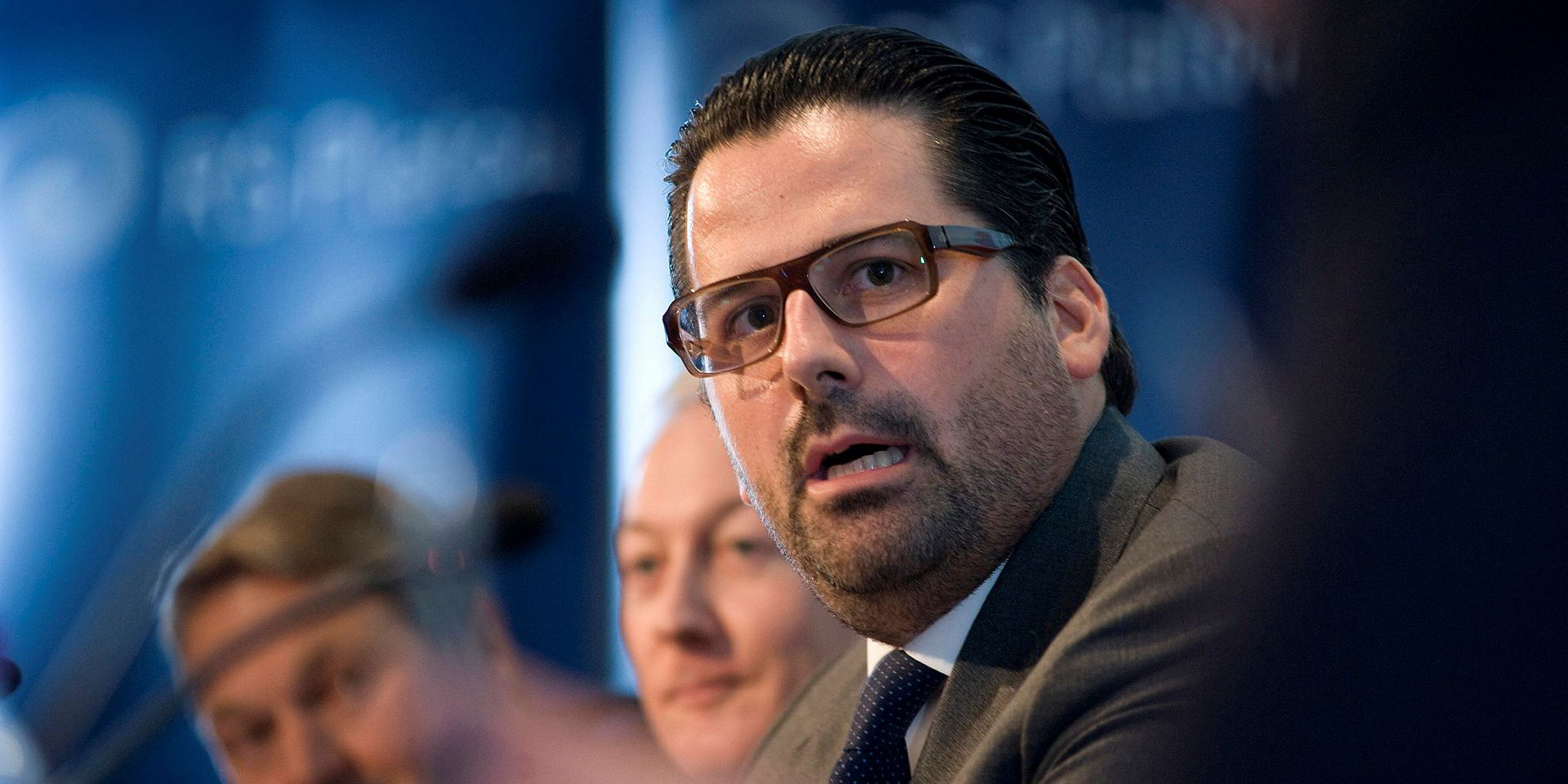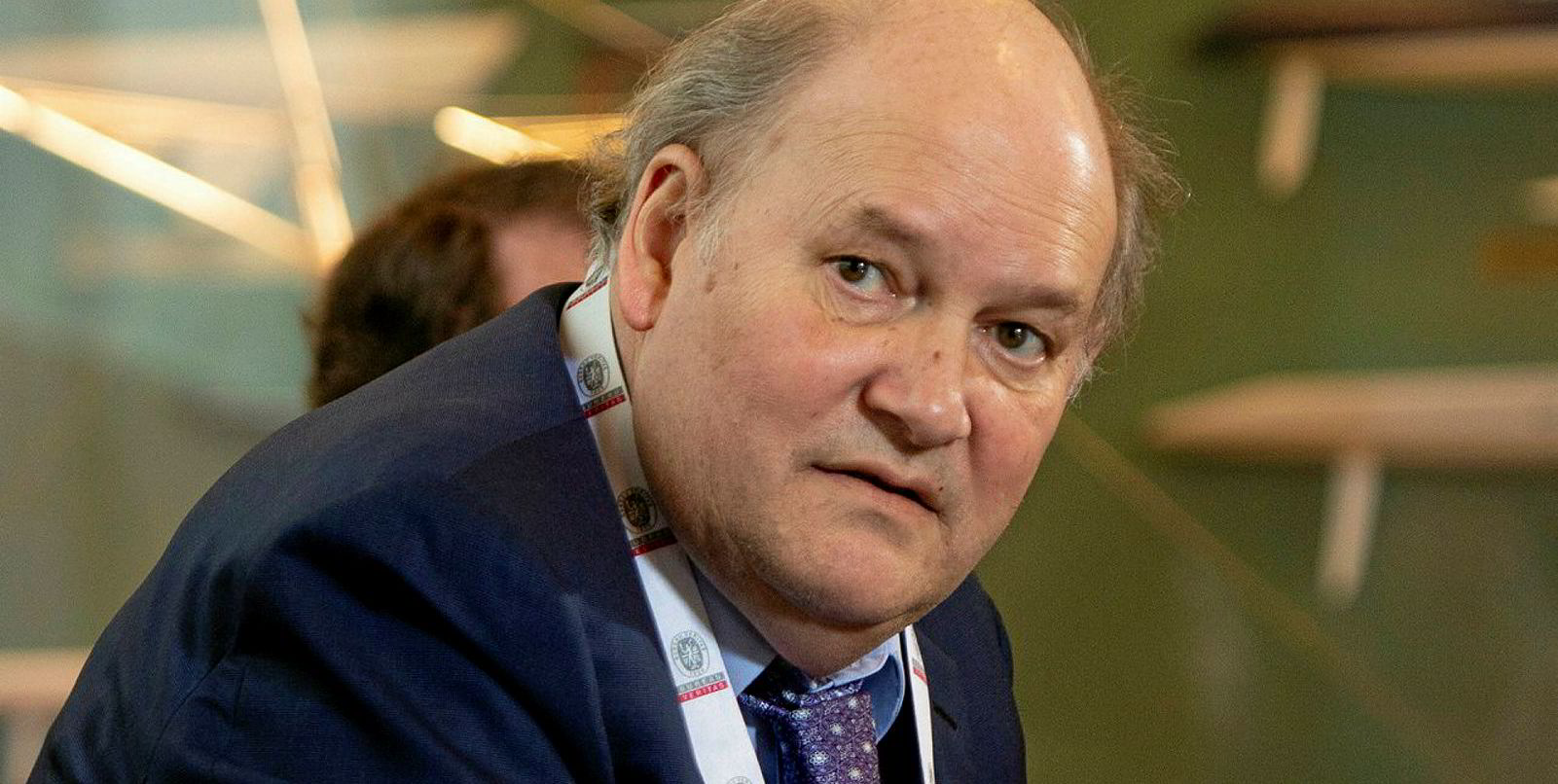A strong wind is coming, and it will blow away some existing jobs dedicated to the dry bulk trade within the private Scorpio Group.
That was one of the takeaways from an exclusive interview with group chief executive Emanuele Lauro and president Robert Bugbee on Tuesday after New York-listed Scorpio briefed investors on its shift from dry bulk to wind turbine installation vessels (WTIVs).
The executives confirmed that staff of the Monaco-based group had been informed of jobs to be lost as the shipowner accelerates its sale of the entire dry bulk fleet, while saying the number of redundancies remains elusive in the early days of the transition.
"When you are transitioning into an entirely different business, inevitably some people from the existing segment are going to be impacted," Lauro told TradeWinds.
“We’re making sure we try as best we can to minimise the impact. But it’s difficult to quantify at this point. There’s potentially a meaningful impact. But it’s hard to say how many, without fully understanding the number with a chance to be assigned to other segments.”
Lauro noted that Scorpio's private management group is responsible for some 240 ships, and only 49 bulkers were within Scorpio Bulkers before the owner began selling ships in recent weeks.
"It's still a minority of the total ships the Scorpio Group manages," Bugbee said.
"But we're both conscious that for those people who can't be transferred after the sale of the dry cargo fleet, it's significant on a personal basis. It's a horrible time for it to be happening in terms of what's going on in the world at large."
Asked whether the staff had been briefed on the changes, Lauro said: “You would expect us to do that. It’s not something, as a private company, that we discuss openly.
“Scorpio Bulkers will be renamed. There are discussions going on, but there’s no new name to report yet.”
The two executives also were able to give more colour on two developments that first emerged in Tuesday's earnings call with equity analysts after Scorpio reported an adjusted loss of $1.15 per share for the third quarter, beating consensus estimates of a $1.21 loss.
The first is that Scorpio Bulkers already has made some hires from other companies currently in the wind sector. Lauro said on the call that five people had either already signed up or were on gardening leave from the jobs they are leaving.
During the interview, Lauro said the hires might be described as "senior management positions... individuals who then would build up the teams underneath them".

Lauro said Scorpio Group is not in position to identify any of the new staffers at this stage.
A second key point is that Scorpio Group will bring management functions for the WTIV fleet within the public outfit, a sharp departure from the current structure in which the private management arm serves both Scorpio Bulkers and public sister Scorpio Tankers.
The existing structure has brought the company criticism from corporate governance purists over payment of related-party fees, although these have been reduced over time.
Asked whether the change reflects the growing importance of the environmental, social and governance (ESG) movement sweeping the industry and the reality of a new green-orientated investor base going forward, Lauro said this was only partially true.
"We did a lot of work over the last couple of years preparing for this, but we were starting from a clean sheet," Lauro said. "It was easy for us to decide we would take the integrated route and build the infrastructure within the public company.
"If we'd already had wind capability, it would have been a much more difficult decision. When you start from scratch, it's easy. But the ESG rationale and trend for the future for sure played a role to an extent."
Bugbee also noted that when the Scorpio Group was preparing to launch Scorpio Tankers in 2010 and then Scorpio Bulkers in 2013 through initial public offerings, it was told by its investment bankers that investors would not be interested in an integrated company.
“Investors would want assets only, not the overhead of management companies within the public company — of course, Wall Street never changes its mind,” Bugbee quipped.






